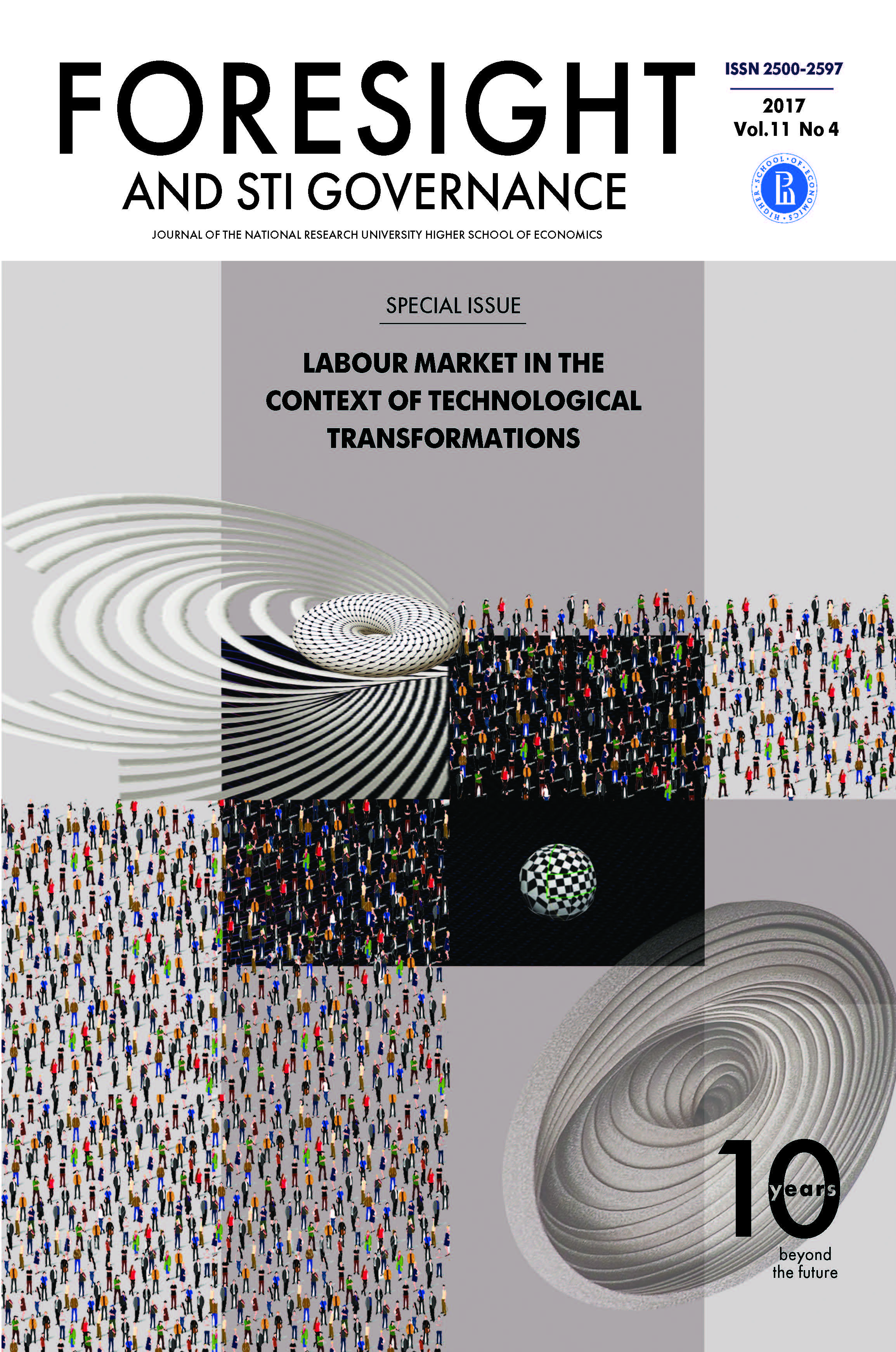Abstract
This paper studies the Russian Science Foundation’s first grant competition, which was held in 2014 to select exploratory or basic research projects, in order to shed light on the following two questions: (1) who wins the grants, and (2) what factors are attributed to winning? The subsample of winners (when compared with the whole sample of applicants) seem to have higher proportions of projects submitted to the life sciences section, projects affiliated with the Russian Academy of Sciences (RAS) and projects from Moscow or the Moscow region. Besides, the heads of the winning projects had better publication indicators. We find that the main factor attributed to winning in the grant competition is the evaluation score given by external experts, while controlling for other factors. Although experts’ score is the most influential factor, the probability of receiving grant is strongly associated with others as well. Thus, projects affiliated with the RAS and with the head of the project holding a doctor’s degree have some advantages, all other factors being equal. Furthermore, projects from the regions and, most importantly, with young project heads, are more likely to win.
References
ANR (2015) Annual Report 2015. Paris: Agence Nationale de la Recherche.
Antonelli C., Crespi F. (2011) Matthew Effects and R&D Subsidies: Knowledge Cumulability in High-tech and Low-tech Industries. Working Paper 11/2011. Rome: University ‘Roma Tre'.
Arora A., Gambardella A. (2005) The impact of NSF support for basic research in economics // Annales d'Economie et de Statistique. № 79-80. P. 91-117.
Benos D.J., Bashari E., Chaves J.M., Gaggar A., Kapoor N., LaFrance M., Mans R., Mayhew D., McGowan S., Polter A., Qadri Y., Sarfare S., Schultz K., Splittgerber R., Stephenson J., Tower C., Grace W.R., Zotov A. (2007) The ups and downs of peer review // Advances in Physiology Education. Vol. 31. № 2. Р. 145-152.
Gush J., Jaffe A.B., Larsen V., Laws A. (2015) The Effect of Public Funding on Research Output: The New Zealand Marsden Fund. NBER Working Paper № w21652. Cambridge, MA: National Bureau of Economic Research.
Jacob B.A., Lefgren L. (2011) The impact of research grant funding on scientific productivity // Journal of Public Economics. Vol. 95. № 9. Р. 1168-1177.
Lazeur E.P. (1997) Incentives in Basic Research // Journal of Labour Economics. Vol. 15. № 1. Part 2: Essays in Honor of Yoram Ben-Porath. P. S167-S197.
Li D., Agha L. (2015) Big names or big ideas: Do peer-review panels select the best science proposals? // Science. № 348 (6233). P. 434-438.
Merton R.K. (1968) The Matthew Effect in Science // Science. Vol. 159 (3810). P. 56-63.
Mowery D. (1990) The Growth of U.S. Industrial Research. Berkeley, CA: University of California (mimeo).
Nelson R. (1959) The simple economics of basic scientific research // The Journal of Political Economy. Vol. 67. № 3. P. 297-306.
Park H., Lee J.J., Kim B.C. (2015) Project selection in NIH: A natural experiment from ARRA // Research Policy. Vol. 44. № 6. Р. 1145-1159.
Pavitt K. (1991) What makes basic research economically useful? // Research Policy. Vol. 20. № 2. Р. 109-119.
Smith R. (2006) Peer review: A flawed process at the heart of science and journals // Journal of the Royal Society of Medicine. Vol. 99. № 4. Р. 178-182.
Клименко А.В. (2014) Все по-честному. Ученые оценят объективность экспертизы РНФ (интервью) // Научное обозрение. 28.05.2014. Режим доступа: http://scientific.ics.org.ru/news/uchenye-ocenyat-obektivnost-ekspertizy-rnf, дата обращения 12.07.2016.
РНФ (2015) Отчет Российского научного фонда за 2014 год. М.: Российский научный фонд.
Хлунов А.В. (2014) Хороших заявок в два с половиной раза больше, чем грантов (интервью) // Газета.Ру. 23.05.2014. Режим доступа: http://www.gazeta.ru/science/interview/nm/s6040141.shtml, дата обращения 12.07.2016.

This work is licensed under a Creative Commons Attribution 4.0 International License.

